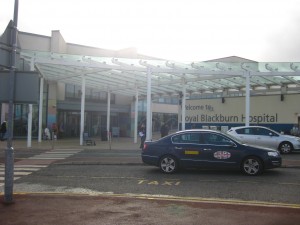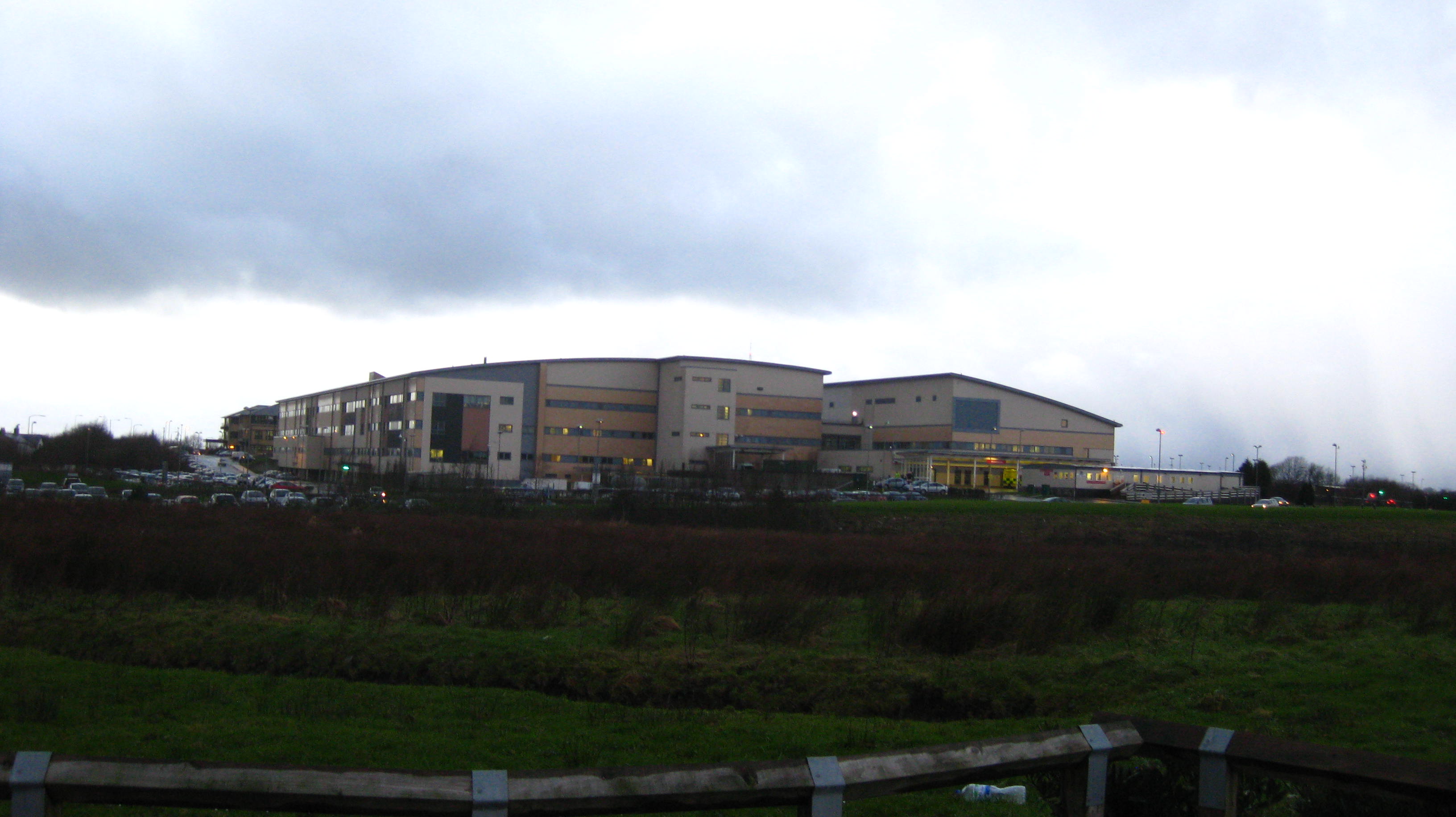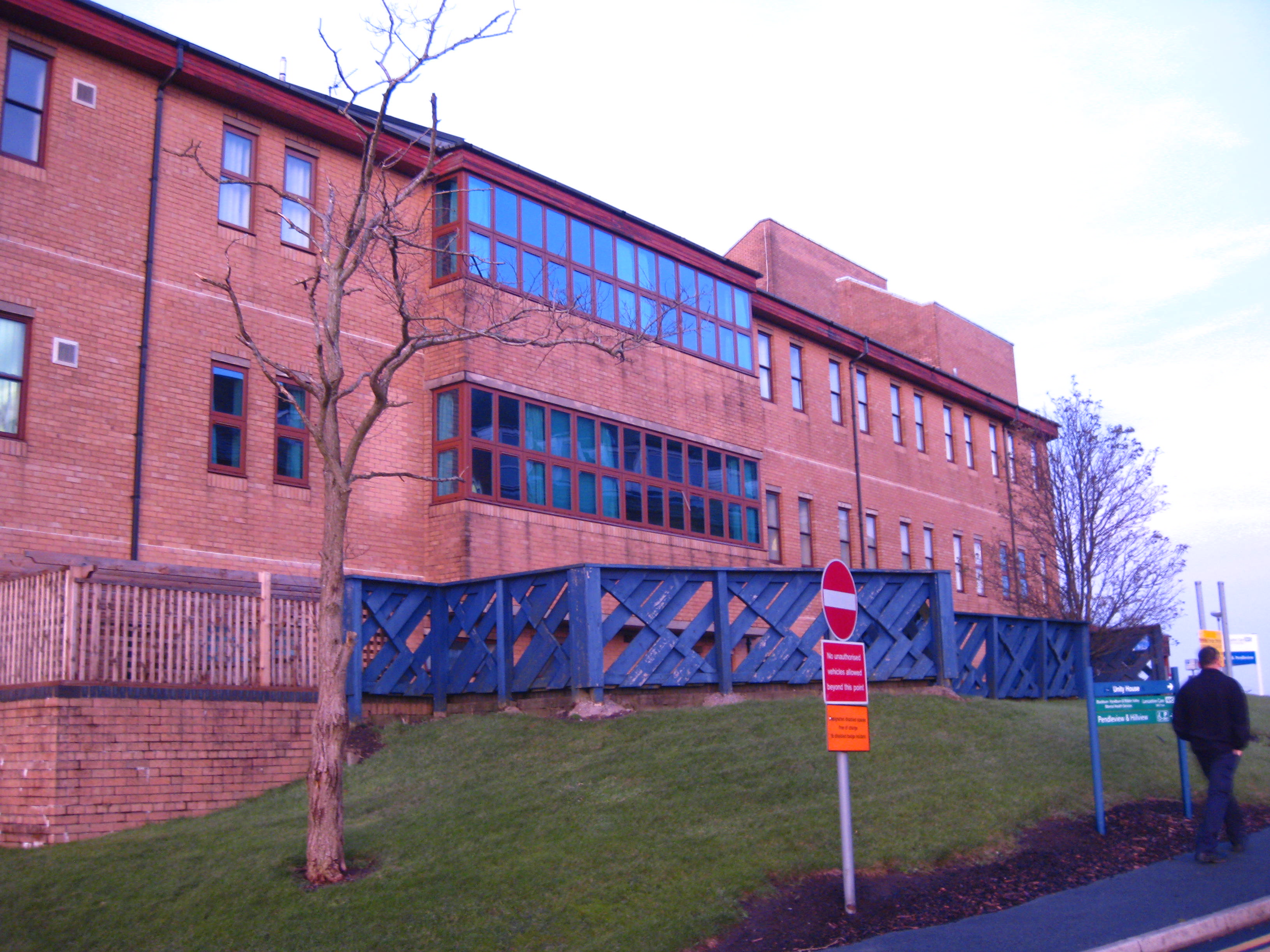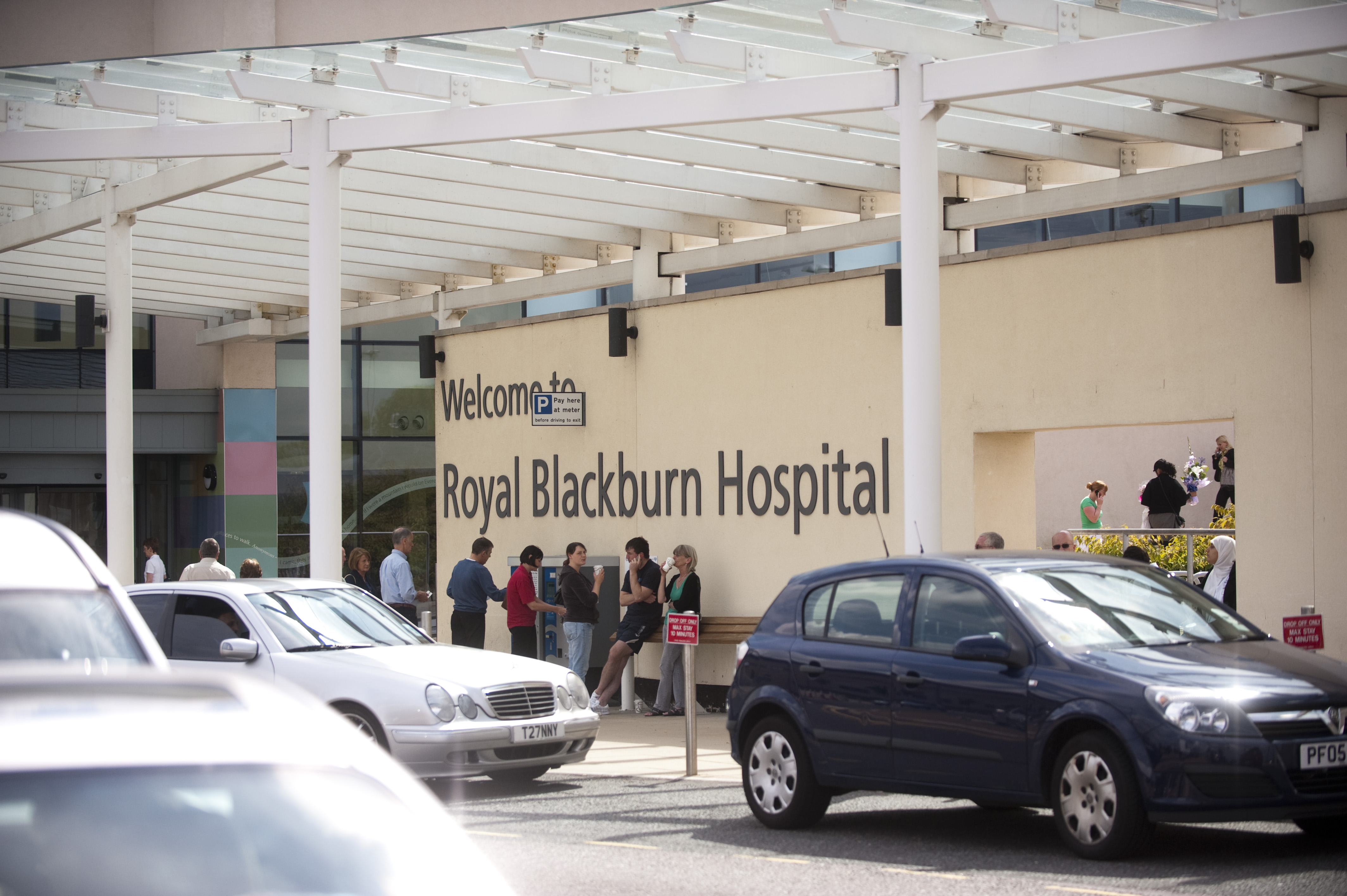Psychiatry in the US vs. UK

Now that I have finished both a psychiatry core rotation at the Royal Blackburn Hospital in the UK as well as a psychiatry sub-internship elective rotation at Mt. Sinai Hospital in Miami, I’ve come to understand the main similarities and differences between the practice of psychiatry in these two locations. While the diagnoses and treatments are more or less the same in both the US and UK, the approach can be quite different. Nevertheless, in both countries, I have had really good learning experiences, and absolutely love and look up to the doctors I rotated with, who are all professional and passionate about what they do.
Disclaimer: I can only speak about my experiences at these two hospitals, Mt. Sinai Hospital in Miami and Royal Blackburn Hospital in Blackburn, England. There may be wide differences in the approach to healthcare among different hospitals within the US as well as the UK, which I cannot address here. I also cannot speak for which system is “better,” but only what I can learn about patient care as a student from these two systems.
Ward Rounds
In Blackburn (UK), the doctors dedicate about 30 minutes to an hour seeing each patient during ward rounds, and they see each patient once or twice a week, 4 patients per day. The encounters take place in an interview room, and each patient is scheduled to see the doctor one at a time. During the ward rounds, the doctor, social worker, nurse, secretary, (and the medical student), and any other professionals involved in the care of the patient are present in the room. Before the patient comes in, everyone in the room usually has a discussion, getting updates about the patient to make sure everyone is on the same page with the patient’s care. Then, the patient comes in and the interaction is usually between the doctor and the patient (and/or the patients’ guardian or caregiver). After the patient leaves, the doctors, nurses, and social workers have another discussion over the encounter that just took place and discuss the next step in the plan. The entire encounter may take up to an hour for each patient.
Because of this scheduling in Blackburn, I saw the doctors conduct very thorough interviews with the patients during the ward rounds and as a student, I learned a lot about the patients’ lives as well as how to do very thorough psych interviews. It was also really good to see how doctors, nurses, and social workers work together as a team to provide care for a patient. Because each doctor only sees about 4 patients per day, I also found that the doctors had more time for students and are very willing to teach students one-on-one. It was not uncommon for my attendings in the UK to sit down with me and teach me about risk assessment or psychosis for an hour or two. I feel that I learned the fundamentals well because of these one-on-one teachings I got from the UK.
On the other side of the world, here in Miami, the approach to psychiatry is much different. Here, the doctors see patients for only a few minutes each day during ward rounds, and usually without social workers or other members of the care team present. But despite the short contact with the patients, the patients are seen nearly everyday by the doctor. On an average day, the psychiatrist here in Miami sees about 20-30 patients per day, but only spent about 2-3 minutes with each patient. Rather than having the patient scheduled to come into an interview room at the ward of the hospital to see the doctor and the care team (like it is in the UK), the doctor-patient encounters in Miami are not scheduled. Rather, the doctors here go into the patient rooms to see the patient, who are often in bed or sleeping, and often with the TV on. Most of the patients here also have a roommate (whereas in Blackburn, every patient has a single room). I found it often difficult to assess the appearance and mood of the patient in this setting as the patient was often drowsy from just being woken up by the doctor or distracted with a TV or roommate in the room, and not in the patient’s regular state of mind. I find the patient encounters in the UK much more orderly and controlled when compared with my experiences here in the US.
As I mentioned before, here in Miami, there’s usually about 20-30 patients to see per day. Because there are so many patients to see in a day, students here in the US often contribute more directly with the patients’ care by helping out the doctor in seeing patients during ward rounds and writing patient progress notes (under the doctor’s supervision). Often here in Miami, I was assigned patients to see and evaluate by myself, present my findings to the doctor, and fill out the daily progress note for the patient, which the doctor would review over, edit if necessary, give me feedback, and sign. It was a good experience because I often felt more like a doctor than a student. In contrast in the UK, all my interactions with psych patients were purely for practice and happened after the ward rounds were finished (this is for Psych only — the other rotations at Blackburn you do participate in the patients care more directly). So after 6 weeks in the UK and 4 weeks in the US for psychiatry, I’d say that I had a good student-learning experience in the UK but a good student-work experience in the US.
Patient Services
One of the differences that struck me are the services that the patients are provided. In Blackburn, once a patient is emotionally safe and stable enough, they may be granted temporary leave from the hospital to visit family, to get a smoke break, to take a walk or get some fresh air, or for any other various reasons. The leaves may be escorted or unescorted, and may range from a few minutes to a few days, depending on the patient’s progress and purpose. In the psych ward at Blackburn, there is also a patient gym with weights and treadmills which the patients may go to. The doctors at Blackburn often grant gym leave to schizophrenic patients who are experiencing weight gain from taking anti-psychotic drugs like olanzapine. Gym access helps them get active, improves their health, gives them something to do, and overall improves their psychiatric well-being. There is also a recreational facility at the psych ward in Blackburn called “Open Doors” which the patients may go to. At Open Doors, there is a pool table, ping pong table, couches, TV’s, and a kitchen where patients can cook food and get back into their normal daily lives. It’s a great place for patients to socialize with each other, contributing to the therapeutic environment of the psych ward. Having facilities like this also encourage the patient to want to improve, so that they may be granted permission to go to Open Doors. In addition, there is also a little convenience store at the psych ward where some patients can even help out at and get the work experience they need before going back out into the real world. I think all of these facilities and services at the psych ward in Blackburn make it a great place for patients to heal, improve, and get back on their feet. It gave me a view of the complex nature of psychiatric conditions, and the complex therapeutic interventions and services needed to help patients return to society.
In Miami, on the other hand, I do not recall seeing any patients granted leave from the hospital to visit family, or go to a hospital-based gym or recreation room (like Open Doors). I don’t think there was any. There are, however, smoke breaks 4 times a day, in which the patients are escorted to an area safe to do so, as well as group therapy led by social workers every day.
As I had mentioned in previous blog posts, the psychiatrists in the UK also do home visits. Home visits help reserve the psychiatric hospital beds for those who really need it, and not to mention, the home environment may be more therapeutic for some patients. Patients discharged from the hospital are also provided doctors, social workers, or other care coordinators to follow up on them at home every other day or so, to make sure they are adjusting well at home and are compliant with their medications, give them support, and to simply say hello. I found the home visits during my time in the UK to be very interesting because it gave me a glimpse into the home setting and social situation that the patient was coming from, and it’s a dimension of the patient that is not often seen from the hospital setting. It really let me understand the patients’ conditions and how an entire team works together to treat patients. It still amazes me today that all of these services are free in the UK. In the US, I don’t recall seeing any type of service like this.
Conclusion
So in conclusion, the med student experience in the US and the UK can be very different due to the different systems’ approaches to patient care. Over these past few months, I really appreciate the opportunity to have experienced psychiatry in both the US and the UK, and it gave me an insight on the strengths and weaknesses of the different systems. But whichever system we end up practicing in, the most important thing is to do what’s safest and most effective for our patients. And as students, whichever place one chooses to do clinical rotations, the most important thing to know is if you’re proactive and eager to learn and ask questions, you’ll learn no matter where you go. Best of luck everyone!














Great blog post idea! It’s amazing to see the difference in the approaches used with psych patients in terms of healthcare in the UK and US. It sounds like it was a great learning experience & may be something I consider when choosing my rotations in the future. Good luck with your future rotations!
Thanks Allysha! Yeah, you’ll find that the experience you get as a student will be different greatly depending on where you rotate, even among different regions within the United States. Although it’s more convenient to stay in one location for rotations, I think educationally it’s more beneficial to rotate at several different clinical sites to experience different approaches to health care.
Hey Benji!
I love the post! I’m the author of my own blog called Shahblahblah and wrote a recent post on how incoming med students should spend and use their time in the summer prior to entering school. I know ALOT of people would benefit from your perspective so if you would like to guest post or perhaps even comment that would be really helpful! I understand you’re crazy busy so don’t feel like you HAVE to do it…I was just curious! Keep on posting!
Hi Benji >>
what a fantastic diary you have prepared >>>
your posting on UK vs. US psychiatry is one of the most interesting things i’ve read in years, and I’ve been a practicing psychiatrist in the USA for many years.
Couldn’t help but offer a few remarks:
1) 2 to 4 minutes per day on “ward rounds” in the USA seems to have
become epidemic >> this is not medical practice, nor medical “care”.
It is assembly line, widget processing.
The reason they “worked” the medical student was SCUT.
2) in the USA, Medicaid and disabled Medicaid recipients
are eligible for services that include home visits under the Medicaid Rehab Services Option (each State chooses how many of these benefits it can afford, for whom, and for how long >>> these are not
automatic services, and it’s entirely possible that the vast majority of patients discharged from American hospitals are NOT getting home services.
3) exercise, kitchens, and patient-vocational-rehab (in-hospital store):
sadly, American hospitals (the majority) seem to have become short-term
jails >> by this, I mean the patients are locked up for 48 to 72 hours
and quickly discharged, in order for the hospital to “beat” the Diagnostic
Related Group insurance standard (e.g., if the hospital gets a certain
amount of money to stabilize schizophrenia in five days, it makes more money by emptying those beds in three, then refilling with the next
schizos). The “race” in the US hospitals (psychiatric) is to make
patients as uncomfortable as possible so they WANT to leave rapidly.
4) It is really not “psychiatry” in the USA when doctors round on
patients in 2 minutes >>> this is pill pushing which “pretends” to stabilize acute problems. In the end, the patients destabilize quickly
after hospitalization and end up in some other hospital’s ER or in jail.
By shuffling patient from facility to facility in the US, the recidivism
problem which is partly created by haphazard services remains delightfully
hidden from view.
I am so glad you had the chance to spend time in the UK where it sounds
like you saw REAL Mental Health Care in action.
The world badly needs young doctors like you, because it is clear from
your writings that your mind, eyes, and your heart are wide open >>
don’t let the USA destroy your gifts. Trust your instincts, think critically, and pray like heck that you can land in a work environment
where quality of care (rather than “productivity”) will be allowed
rather than censured.
AWESOME POST!! I think I want to become a psychiatrist. I work at a psychiatric hospital now as a psyc tech and I mostly run the unit myself and report to the attending physicians and social workers. I can’t wait to return to school to be on the other side of things, realizing that without the “smaller people” in the hospital totem pole that my job would not be as easy.
Hi, how were you able to get the internship in Miami? I am a recent graduate in psychology and I’m in desperate search of a hospital in the USA that will grant me an internship. Your blog is very interesting and I was wondering whether you can help me find one.
Thank you
Hi Neia, I didn’t do an internship in Miami. I did a clinical rotation through my school. Congrats on your recent graduation and hope you find a hospital.
Great blog post! Very informative indeed.
Looking back on your UK experience, do you think that time spent in the UK would have better served you had you been in the US for the rotations purely in applying and interviewing for residency?
Not at all — I had an awesome experience in the UK, one that helped me grow academically, and set me apart from other candidates. It gave me a different perspective of how medicine can be practiced, and gave me something interesting to talk about during my interviews. I don’t see going to the UK as a set-back — I still received plenty of interview offers.